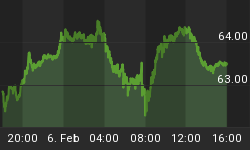It is rare that I write early on a Monday morning, but today there is this. A story on Bloomberg highlighted the pressure that the IMF is putting on Japan to institute an "incomes policy" designed to nudge (and force, if necessary) companies to increase wages. IMF mission chief for Japan told reporters a couple of weeks ago that "we need policies to support wage increases in Japan;" the Bloomberg article also names a former IMF chief economist and the current president of the Peterson Institute for International Economics as proposing an immediate boost of salaries of 5-10% for unionized workers.
It is truly appalling that global economic policymakers are essentially illiterate when it comes to economic history. The IMF suggestion to institute wage hikes as part of triggering inflation is not a question of misunderstanding macroeconomic models (although it manages to do this as well, since wages follow prices and thus increasing wages won't cause inflation unless other conditions obtain). At some level, it is a question of ignorance of history. After the stock market crash in 1929, President Hoover persuaded major industrial firms (such as GM, U.S. Steel, and the like) to hold wages constant or raise them. Since prices were falling generally, this had the effect of raising the real cost of production, which of course worsened the subsequent Depression. According to one analysis, this single decision caused GDP loss in the Great Depression to be triple what it otherwise would have been if wages were allowed to adjust (because, again, wages follow prices and are the main mechanism by which a surplus or shortage of labor is cleared). It wasn't just Hoover, of course: later, FDR established the National Recovery Administration to administer codes of "fair competition" for every industry that established minimum wages and prices. The NRA was struck down in large part by the Supreme Court, but the notion of arresting deflation by adjusting wages was quickly reintroduced in the National Labor Relations Act of 1935.
There is wide agreement, although I am sure it is not universal, that preventing markets from adjusting is a big part of what made the Great Depression so Great. And this isn't theory…it's history. There is no excuse, other than ignorance, for policymakers to whiff on this one.
Deflation can be bad, but it doesn't need to come with massive unemployment. In Japan, it has not: the unemployment rate is 3.1%, the lowest it has been since 1995. But push wages higher artificially, and Japan can have the massive unemployment as well. Thanks, IMF.
You can follow me @inflation_guy!
Enduring Investments is a registered investment adviser that specializes in solving inflation-related problems. Fill out the contact form at http://www.EnduringInvestments.com/contact and we will send you our latest Quarterly Inflation Outlook. And if you make sure to put your physical mailing address in the "comment" section of the contact form, we will also send you a copy of Michael Ashton's book "Maestro, My Ass!"















